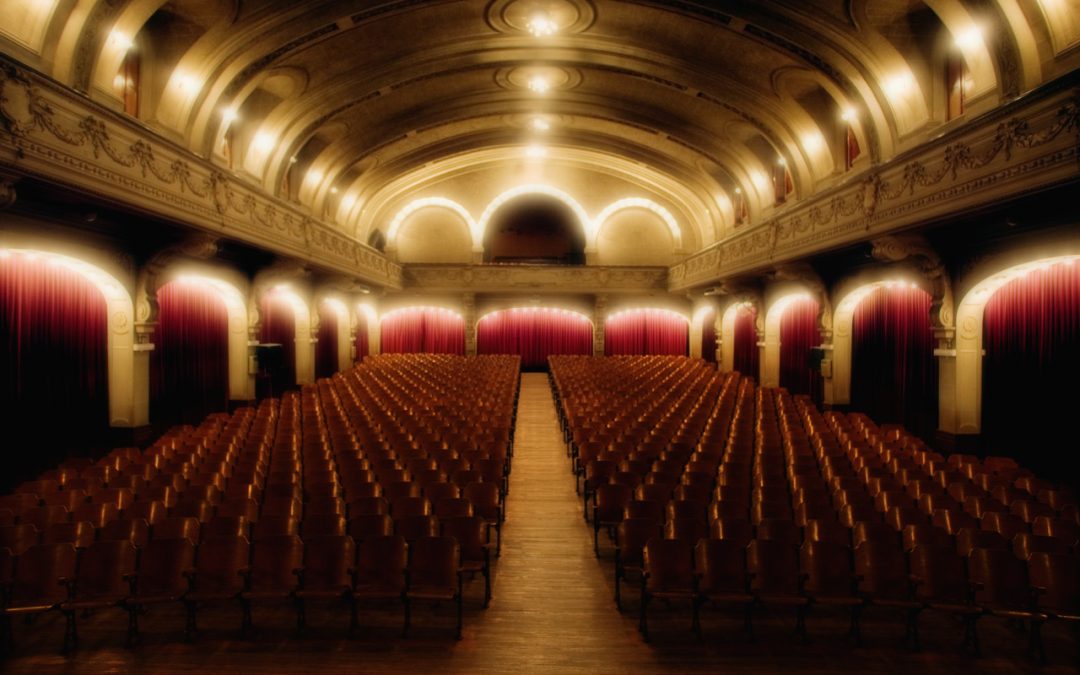Being in the spotlight means having your creative work witnessed and responded to by an audience.
It means being read, seen, heard.
Being in the spotlight means having an audience.
Whenever our work is seen, we are seen.
- If you’re a novelist, you’re in the spotlight when you publish your work, whether you publish it online or in print. Writers are in the spotlight through their books, articles, on their websites, at public readings, and in interviews.
- If you’re a blogger, you’re in the spotlight every time you hit the publish button. People are reading your words, thinking about them, and responding to them.
- Artists are in the spotlight whenever you share your creative work, and receive feedback on it. Think of gallery showings, exhibits, and studio tours. Or website galleries online.
- Actors are in the spotlight when you are on stage, on the big screen, or on television. And celebrity actors are in the spotlight anytime they are in public.
- Screenwriters are in the spotlight when the movies you’ve written play on the big screen or when someone reviews your writing publicly.
- Poets, journalists, public speakers, radio broadcasters, and many more professions are seen, heard, and read.
I’m surprised to discover how many people feel drawn to the spotlight even while they (we) also have contradictory instincts toward strongly preferring peace, quiet, home, and solitude as a general rule.
Many artists, actors, introverts, sensitives, empaths, and writers much prefer the solitary life, but still feel some pull to sharing their work and being seen, read or heard in some way.


goodness me! I’m SO glad I read your blog posts as a priority!
Yes, I’m a reluctant something or other in the spotlight and boy do I resonate with what you’ve written here!
I can certainly say, without a doubt, that it wasn’t until you analyzed my hands that I truly “knew” that I HAD to be seen in a bigger way. I only seemed to know it as frustration and doubt; all kinds of stuff about feeling invisible and misunderstood used to come up regularly. …but now, I get it and have begun putting myself out there more and more, feeling more aligned with my true self than ever (I guess this is proof that I’m living the life I’ve been called to!). Despite my resistance, I now know that the urgency I feel within me has alot to do with needing to be seen (or heard, or read) more broadly.
I’m so glad I get to be the hermit that I am at the same time!
As you often do, you’ve given me JUST the permission I’ve been needing.
I’m forever grateful, Jenna!
xo
Lydia, you’re welcome. And you couldn’t have said it more clearly. Thank you for that. Isn’t it amazing how KNOWING you have that call to the spotlight can be so affirming? And I think even if we don’t have the gift marking or life purpose marking or know for sure that we do, even just understanding the concept that this kind of nagging frustration can indicate that we need to get out there more in some way shape or form is powerful.
As an interesting corollary to this, is an artistic work without a certain size audience necessarily invalid or meaningless? If such logic applies, it would mean that if everyone hated your work, that would make it bad. Or that if everyone loved your work, that would make it great.
We often use the size of our audience to measure the value of what we do. I think what’s more important, what I’ve had to do in my own life, is learn to value the work however I choose to put it out there, and not read quite so much into the response (or lack thereof) it receives. So while it’s important, certainly, to put ourselves out there, we have no control over the response we receive, and we do ourselves a disservice if we allow a poor or non-existence response to become a judgment of what we do, or discourage us from pursuing work that has meaning to us. The work, in the end, may only be “good enough” for an audience of one, but that makes it no less important to our development as human beings.
Hi John, Great comment. I agree, we need to pursue our creative work regardless of what anyone thinks. I think a likely scenario is that some people will love your work while others will not. I’m QUITE SURE that there are folks out there who will really dislike the sci fi screenplay I’m writing. But I’m not writing it for them. First, I’m writing it for me. Second, I’m writing it for people who like the genre, in the hopes that they will enjoy my story. But they may not, and I cannot let that dictate my willingness and passion for the pursuit of it.
On the other hand, from my work in hand analysis, I have come to see the natural feedback exchange between artist and audience as much less of an ego-driven, value-defining sort of process and more of a coming together around the work to experience it. You’re right, we can’t control the response we receive, and I would not want to see us pandering entirely to audience desires — being true to our art and vision feels incredibly important to me — and yet, sometimes our audiences can give us information about how we can reach and stretch farther into the truth of what we are wanting to express. And that is really worth something.